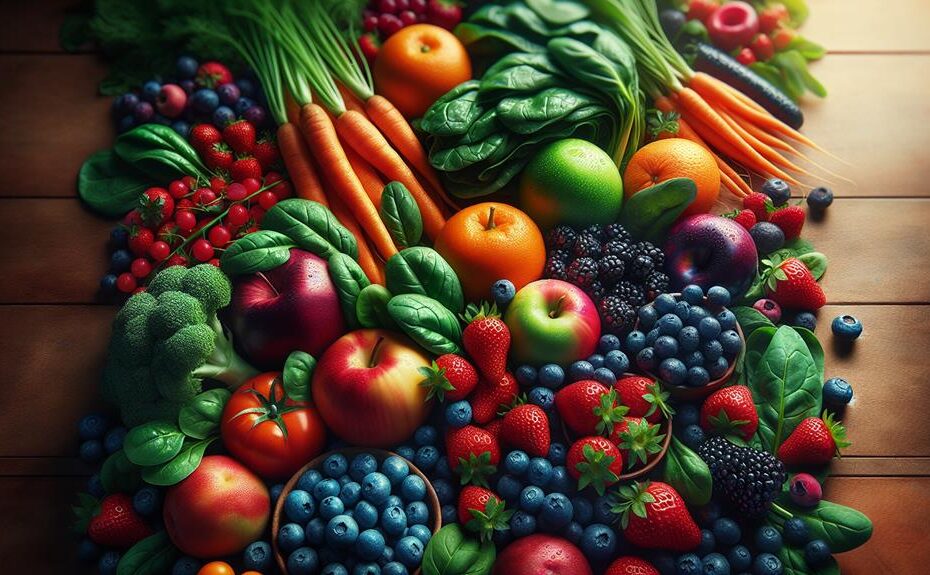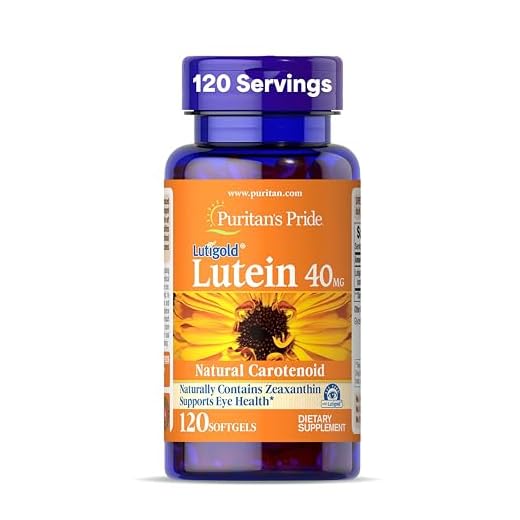







Promote peak eye health by prioritizing essential vitamins like Vitamin A for night blindness prevention and retinal support, Vitamin C for antioxidant protection against macular degeneration, and Vitamin E for eye tissue defense. Additionally, incorporate Vitamin D to reduce the risk of eye diseases and omega-3 fatty acids to protect against age-related vision issues. Don't overlook Lutein and Zeaxanthin, which filter harmful light and maintain eye pigment. These vitamins play a crucial role in eye health, supporting clear vision and safeguarding against eye conditions. Learn how each vitamin contributes to maintaining healthy eyes.
Key Takeaways
- Vitamin A is essential for maintaining ideal eye health and preventing night blindness.
- Vitamin C is a powerful antioxidant that reduces the risk of macular degeneration and cataracts.
- Vitamin E protects eye tissues from oxidative damage and promotes overall eye health.
- Vitamin D, known as the 'sunshine vitamin,' reduces the risk of age-related macular degeneration.
- Omega-3 fatty acids, found in fish oil and plant-based sources, help protect against age-related macular degeneration and dry eyes.
Vitamin A
To maintain ideal eye health, consuming foods abundant in Vitamin A is essential for supporting proper vision and overall eye function. Vitamin A plays a critical role in preventing night blindness, a condition where individuals experience difficulty seeing in low-light environments. This essential vitamin is a key component of rhodopsin, a protein in the retina that enables vision in low-light conditions. By ensuring an adequate intake of Vitamin A, you can effectively prevent night blindness and maintain excellent vision.
Moreover, Vitamin A offers significant benefits for retinal health. The retina is a light-sensitive tissue located at the back of the eye that plays a vital role in transmitting visual information to the brain. Vitamin A helps maintain the health and integrity of the retina, supporting its function in capturing and processing light signals. By including Vitamin A-rich foods such as carrots, sweet potatoes, and spinach in your diet, you can enhance retinal health and promote overall eye function. Prioritize Vitamin A consumption to safeguard your vision and support the health of your eyes.
Vitamin C
Ensuring an adequate intake of Vitamin C is essential for maintaining excellent eye health and supporting various functions within the visual system. Vitamin C is a powerful antioxidant that helps protect the eyes from oxidative stress and damage caused by free radicals. By neutralizing these harmful molecules, Vitamin C can reduce the risk of age-related macular degeneration and cataracts, two common eye conditions.
Citrus fruits like oranges, lemons, and grapefruits are excellent sources of Vitamin C. These fruits provide a natural and delicious way to boost your intake of this essential vitamin. Additionally, vegetables such as bell peppers, broccoli, and strawberries also contain high levels of Vitamin C, making it easy to incorporate into your daily diet.
Incorporating Vitamin C-rich foods into your meals can help promote eye health and overall well-being. Remember to include a variety of citrus sources in your diet to reap the antioxidant benefits that Vitamin C offers to your eyes.
Vitamin E

Vitamin E plays a crucial role in maintaining ideal eye health by acting as a potent antioxidant that protects the eye tissues from oxidative damage caused by free radicals. The antioxidant benefits of Vitamin E help neutralize these free radicals, which are unstable molecules that can harm the eye cells and lead to various eye conditions. This vitamin is particularly beneficial for the eyes because of its ability to reduce inflammation and prevent cellular damage.
Furthermore, Vitamin E is known to promote skin health, which indirectly benefits the eyes as well. The skin around the eyes is delicate and prone to damage from environmental factors, UV radiation, and pollution. By supporting skin health, Vitamin E helps maintain the integrity of the skin around the eyes, reducing the risk of premature aging and maintaining a healthy barrier that shields the eyes from external threats. Including Vitamin E-rich foods or supplements in your diet can contribute to overall eye health and well-being.
Vitamin D
An essential nutrient important for maintaining excellent eye health and overall well-being is Vitamin D. Vitamin D is commonly known as the 'sunshine vitamin' as your skin produces it when exposed to sunlight. Adequate sun exposure is a natural way to boost your body's Vitamin D levels. However, factors like geographical location, sunscreen use, and limited outdoor time can hinder this process, making Vitamin D supplementation important for many individuals.
The benefits of Vitamin D extend beyond just bone health. Research suggests that this vitamin plays a significant role in supporting eye health by reducing the risk of age-related macular degeneration, a common cause of vision loss in older adults. Additionally, Vitamin D deficiency has been linked to an increased risk of certain eye conditions like dry eyes and diabetic retinopathy.
Ensuring you have sufficient Vitamin D levels through a combination of sun exposure and supplementation can contribute to maintaining healthy eyes and overall well-being. If you suspect a deficiency, consult with your healthcare provider to determine the best course of action.
Omega-3 Fatty Acids

To support ideal eye health, consider incorporating Omega-3 Fatty Acids into your diet as they have been linked to various benefits for vision and overall well-being. Fish oil benefits from Omega-3 fatty acids are particularly significant. The two main types of Omega-3s found in fish oil, EPA, and DHA, play vital roles in eye health. Studies suggest that these fatty acids may help protect against age-related macular degeneration (AMD) and dry eyes by reducing inflammation and promoting healthy blood flow in the eyes.
For those who prefer plant-based sources, flaxseeds, chia seeds, walnuts, and algae oil are excellent options rich in ALA, a type of Omega-3 fatty acid that can be converted into EPA and DHA in the body, although the conversion rate is lower than direct consumption of EPA and DHA. Plant-based Omega-3 sources may still offer benefits for eye health, especially when included as part of a balanced diet. Consider incorporating these sources into your meals to reap the eye health benefits associated with Omega-3 fatty acids.
Lutein
Incorporating lutein-rich foods into your diet can play a significant role in supporting and maintaining excellent eye health. Lutein is a carotenoid antioxidant known for its ability to filter harmful high-energy blue wavelengths of light, which helps to protect and maintain healthy cells in the eyes. Lutein is not produced by the body, so it must be obtained through diet or supplements.
Lutein supplements are available for those who may have difficulty consuming enough lutein-rich foods. Studies suggest that a daily intake of 10mg of lutein is beneficial for eye health. Lutein-rich foods include leafy greens like spinach, kale, and collard greens, as well as other sources like corn, peas, and eggs. These foods can boost the levels of lutein in the macula of the eye, which is essential for maintaining clear and sharp vision.
Zeaxanthin

Zeaxanthin, a pigment found in various foods, is another important carotenoid antioxidant essential for promoting best eye health. Zeaxanthin benefits the eyes by acting as a natural filter of harmful high-energy blue light, helping to protect the delicate tissues of the retina. This carotenoid is particularly concentrated in the macula, the central part of the retina responsible for detailed vision. Studies suggest that zeaxanthin plays a key role in maintaining macular pigment optical density, which is linked to visual performance and reducing the risk of age-related macular degeneration.
Zeaxanthin sources include green leafy vegetables like spinach, kale, and collard greens, as well as orange and yellow fruits and vegetables such as oranges, peppers, and corn. While the body does not produce zeaxanthin on its own, obtaining it through a balanced diet or supplementation is essential for overall eye health. Incorporating zeaxanthin-rich foods into your meals can contribute to the protection and maintenance of your vision over time.





